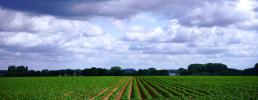Horizon Europe FarmBioNet Project: A farmer-centered agricultural knowledge and biodiversity network
- Type Project
- Status Signed
- Execution 2025 -2027
- Assigned Budget 2.713.753,72 €
- Scope Europeo
- Main source of financing Horizon Europe 2021-2027
- Project website Proyecto FarmBioNet
Farmers and foresters often lack accessible knowledge about how biodiversity benefits sustainable agriculture, which hinders the adoption of biodiversity-friendly agricultural practices (BFAs). This problem is particularly evident in Europe's Natura 2000 protected areas, where the preservation of natural habitats is crucial.
The EU-funded FarmBioNet project seeks to close this knowledge gap. Bringing together natural and social scientists, farmer groups, NGOs, and policymakers from 13 countries, FarmBioNet will foster national and European networks to disseminate practical and contextualized knowledge on ABR practices. These networks will facilitate case studies and cost-benefit analyses to highlight the role of biodiversity in climate resilience, soil health, and the sustainability of food production. By placing Europe at the forefront of biodiversity-friendly agriculture, FarmBioNet aims to ensure ecological and economic benefits for future generations.
The beneficial links between biodiversity and agriculture have not yet been adequately communicated to farmers and foresters, leading to reluctance to adopt biodiversity-friendly farming practices, even in Natura 2000 sites. FarmBioNet will address this knowledge gap in European agriculture and forestry. The FarmBioNet consortium combines the expertise of natural and social scientists, farmers' organizations, SMEs, NGOs, businesses, and ministries across 13 countries (11 Member States).
FarmBioNet will promote Europe-wide knowledge exchange and the integration of research results and practices related to farmland biodiversity, especially within Natura 2000 sites, including those relevant to climate change mitigation/adaptation and soil health. It will evaluate and refine measures, and develop and use cross-sectoral approaches to collect and distribute, at national and European levels, easily accessible, practice-oriented, and context-specific knowledge on BFF practices. A central element of FarmBioNet is the establishment of National Agriculture and Biodiversity Networks (NNs), composed of individuals and organizations of farmers/foresters, researchers, NGOs, advisors, and other relevant AKIS stakeholders. FarmBioNet will use these NNs to collect and disseminate knowledge and information.
The NNs will use BFF case study areas to promote the exchange of traditional and evidence-based actions that benefit agricultural biodiversity, through a process of co-creation and cross-fertilization. Cost-benefit analyses, which show how biodiversity can benefit sustainable food production, and the development of practical decision-making tools will promote biodiversity among farmers and foresters, and local, regional, and national policymakers. FarmBioNet aims to position Europe as a world leader in biodiversity-friendly farmland management practices, leveraging knowledge to protect biodiversity and the ecosystem services it provides, which are vital for sustainable land management and bring broader societal benefits.







